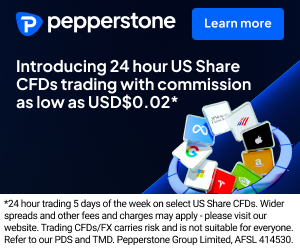Discover if Big Boss is a reliable broker for crypto trading in 2025. Account from $1 USD, no commissions, and MT4/MT5 platform for active traders.
GETTING STARTED WITH REPUBLIC WEALTH
Thinking of investing in the Trinidad and Tobago Stock Exchange but not sure where to start? In this article, we explain who this stockbroker is, how they operate locally, and what kind of services they offer to get you going.
We also cover how to open your account, what you can invest in, and what to consider if you're just starting out. A straightforward guide to help you make your first moves in the local market with confidence.

Invest Through Republic Wealth in Trinidad
Republic Wealth Management, part of Republic Bank, offers Trinis professional investment services backed by decades of financial stability. Their platform provides direct access to the stock exchange, government instruments, and tailored investment funds.
They work closely with clients to align portfolios with personal financial goals, all while offering tools and insights to navigate the markets.
The process to open a trading account is smooth: simply provide ID, proof of address, and financial information. Republic is ideal for anyone who values institutional support with a personal touch.
What Are Stockbrokers and How Do They Work in TT?
Stockbrokers are licensed market professionals who facilitate the buying and selling of securities on behalf of investors. These transactions take place through the Trinidad and Tobago Stock Exchange (TTSE) and are regulated by the Trinidad and Tobago Securities and Exchange Commission (TTSEC).
They provide essential access to the capital market, allowing individuals, businesses, pension funds, and institutions to invest in shares, bonds, mutual funds, and government securities. Here’s how they operate within the country’s financial landscape:
Trading Services: Stockbrokers place buy and sell orders for securities listed on the TTSE, including ordinary shares, preference shares, government bonds, and corporate debt instruments.
Licensing and Oversight: All brokers must be registered with the TTSEC and comply with the Securities Act, ensuring fair dealing, investor protection, and market transparency.
Account Opening: Investors are required to open a brokerage account and a client account with the Trinidad and Tobago Central Depository (TTCD). This enables secure holding and settlement of securities.
Research and Advice: Many stockbrokers offer investment advice, market updates, and portfolio strategies tailored to your risk appetite and financial goals — from retirement planning to wealth generation.
Access to IPOs and Bonds: Stockbrokers also assist investors with subscribing to Initial Public Offerings (IPOs), government bond issues, and other public placements.
Settlement and Custody: All trades are settled via the TTCD and securities are held electronically in the investor’s name, ensuring proper record-keeping and transparency.
Client Base: Stockbrokers in Trinidad and Tobago serve individuals, corporations, credit unions, pension plans, and high-net-worth clients, offering solutions for both short- and long-term investing.
Fees and Commissions: Charges vary by broker and may include a trading commission, TTSE fees, and administrative costs. These are typically disclosed upfront before any trade is placed.
Tradable Instruments on the TT Stock Exchange
The TTSE supports trading in both equity and debt securities, and plays a key role in developing the capital markets in the region. Below are the main instruments available for trading on the Exchange:
Ordinary Shares: Publicly listed companies on the TTSE issue shares that represent ownership. Investors can earn dividends and benefit from potential capital appreciation. Companies like Republic Financial Holdings, Massy Holdings, and GraceKennedy are among the major listings.
Preference Shares: These are equity instruments that generally provide fixed dividend payments and have priority over ordinary shares in the event of liquidation. They are a popular option for conservative investors seeking regular income.
Government Bonds: Issued by the Government of Trinidad and Tobago, these debt instruments are used to fund infrastructure and public projects. They are considered low-risk and offer periodic interest payments.
Corporate Bonds: Companies may issue bonds to raise long-term capital. These instruments provide fixed or floating interest payments and are traded on the bond market via registered brokers.
Mutual Funds (Listed Units): Some mutual funds are listed and traded on the Exchange, offering investors a chance to gain exposure to a diversified portfolio through a single investment. These include local funds and Caribbean-based regional portfolios.
Exchange-Traded Funds (ETFs): The TTSE also lists regional ETFs such as those tracking the Cross-Listed Index or international benchmarks. ETFs combine diversification and low fees, ideal for passive investors.
Cross-Listed Securities: Companies from across the Caribbean—like Jamaica, Barbados, and St. Lucia—may have shares listed on the TTSE. These offer investors access to broader regional opportunities without currency exchange complexities.
Repurchase Agreements (Repos): Though not traded directly on the TTSE, repos are used by institutional investors and financial firms for short-term cash and liquidity management, backed by government or corporate securities.
YOU MAY ALSO BE INTERESTED







